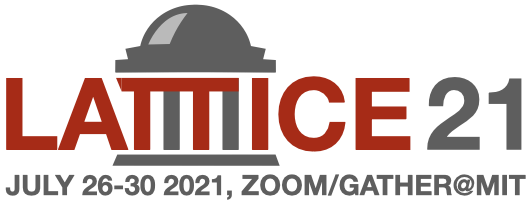Speaker
Description
We apply the persistent homology analysis to effective models of quantum chromodynamics (QCD) with heavy quarks on a rectangular lattice to investigate the confinement-deconfinement transition. In this talk, I will concentrate on the effective Polyakov-line model and the Potts model with external field as the QCD effective model. The configurations are mapped onto the complex Polyakov-line plane without taking the spatial average and then the $\mathbb{Z_3}$ structure is analyzed. This study may have the relation with previous studies for the center clusters and the percolation properties. The spatial structure of the configurations is analyzed by using the persistent homology to obtain information of the multiscale structure of center clusters. In the confined phase, the data in the three different domains show the same topological tendency characterized by the birth and death times of the holes via the filtration of the alpha complexes, but the deconfined phase show different behavior. By considering the configuration averaged ratio of the birth and death times, we can construct the nonlocal order-parameter of the confinement-deconfinement transition based on the multiscale topological properties of center clusters.




